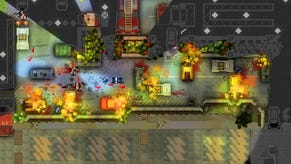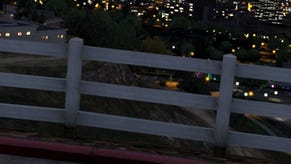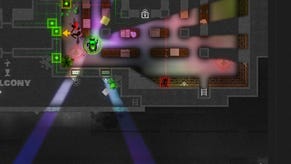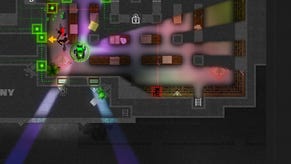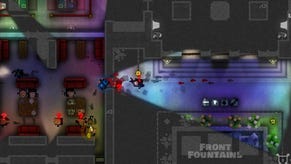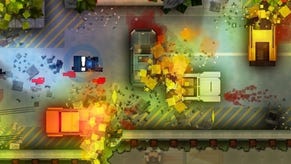Inside Monaco, the first big indie hit of 2013
Heist society.
If Monaco was a movie, then the movie would probably cost a couple of hundred million dollars. Seriously, it's budget busting stuff: massive heists, dozens of casualties, terrifying chases, complex security systems to disarm and plenty of last-minute escapes. Phew.
That's if the director took the Ocean's Eleven angle, anyway, but this tale of bank robbers, burglars, and general miscreants shaking up one of the plushest city states in the world could play out very differently. Just listen to the soundtrack with its wonderfully plinky-plonking music hall piano. Maybe Monaco: the movie could be a Keystone Kops offering: bumbling security guards, paper-thin sets and a kind of antic, barely contained energy leading to most of the comedy. High spirits instead of big budgets: that's Monaco thinking.
Even as a game, Monaco should cost a fair bit, really, but the developers have been very canny. Rather than a mega-budget 3D effort, this is a smart, stylish, top-down indie game: all of the excitement at a fraction of the cost, and with a neat look to mark it out from the crowd. It's Hotline Miami for safe-crackers, and the blueprints-styled perspective does a lot more for the adventure than simply negate the need to create expensive geometry for the banks, mansions, and prisons you're busting in and out of. It allows for a widescreen view of proceedings so that you can revel in all of the game's moving parts. It keeps you at arm's length a bit, too, in an entirely thrilling way: you feel ever so slightly removed from the action sometimes, which means when things go wrong, the unfolding chaos has an extra tart little sting to it.
Based on a morning with a preview build, Monaco promises to be authentically tense and authentically hilarious. You - and up to three co-op partners - play a gang of thieves, stealing your way around the glitzy principality, one target at a time. The first level sees you breaking out of chokey, for example, while a few minutes later you're raiding an embassy to steal some passports to help get you across the border. Each mission - each heist - works in real time as a series of intricate top-down stages. You move your little criminal through a maze of hallways, antechambers, sewers and vaults, avoiding patrolling guards, taking out the security tech, and working your way towards your ultimate prize. Then you have to get back out again.
The objective of the game may be to pick up as much loot as you can, but Monaco's in-game economy is powered by time. Push up against a locked door, and a little countdown wheel will tick away until you've opened it. The same goes for fiddling with computer terminals to turn off CCTV cameras or laser grids, scaling ladders, or even hiding in a conveniently placed chunk of shrubbery. The thing is, with all those guards knocking around the place - and civilians in later levels, who will raise the alarm if they see you acting suspiciously - time is the one thing you generally don't have: it's brilliantly horrible stuff to watch that countdown wheel inching along as you try to jimmy a door, while a security bod merrily smacks you over the head, taking your health meter away in hungry chunks.
You'll need to think about time, and you'll also need to think about vantage point. While the basic geometry of Monaco's levels are always visible as blueprints no matter where you are, there's a kind of real-time fog of war to take into account as you race around: walls will obscure the rooms that lie beyond them, which means each door breach becomes exactly what the CODs of this world wish they were - a genuine set-piece: an organic muddle of chaos as you barge in on tooled-up lawmen, or a swooning moment of relief as you realise that you've got away with it again. (When you can actually see the world of Monaco, incidentally, you'll realise that it's filled with glorious little details. A guard's station might be cluttered with tabloid newspapers or coffee cups, while a mansion's courtyard could be riddled with burbling fountains, and a spar of lonely coastline might have starfish speckling its sands.)
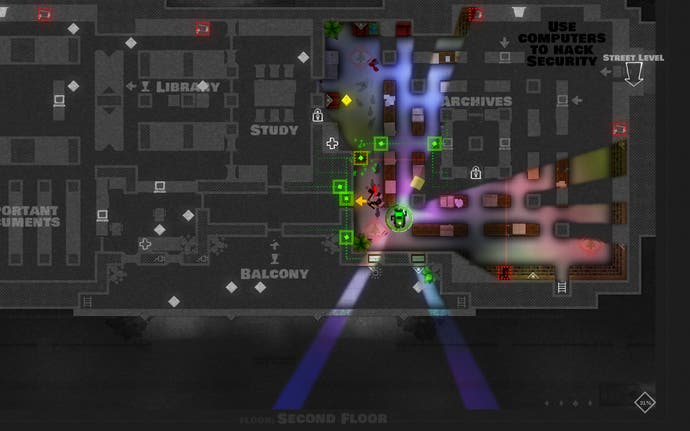
To even things up a little, each member of your burglary team comes with a specific perk. The cleaner can take out unwitting guards, for example, while the locksmith can breach doors much quicker than everyone else. One of the characters - the pickpocket - walks around with a pet monkey who vacuums up any spare loot he comes across on the way to the ultimate objective, and the lookout - my favourite - allows you to see patrolling guards wherever they lurk on the map.
You're actively encouraged to try out all of the classes, since they also act as your lives in single-player. Screw things up as the locksmith, say, and you can go back in as the mole (he can dig through certain kinds of barrier, and is hopefully a reference to the weirdly empathetic Dick Tracy character). It's another neat system, forcing you to experience all of the game's tricks, while also showing up how much the classes affect your approach. By your third mission or so, you'll probably start to think about lives tactically: let's use the locksmith to get to the second floor, and then I'll bust out the cleaner and go mental.
The classes work even better in multiplayer, of course, which is where Monaco really comes to life. It can be genuinely exasperating to sit in the lobby and watch your partners choose the wrong gang members to enter the fray with, and, when things are going well, it's enormously satisfying to be part of a really smart outfit - one guy unlocking a path to the vault, say, as another hangs back and hacks a snaking line of security terminals and another deftly takes out the opposition.
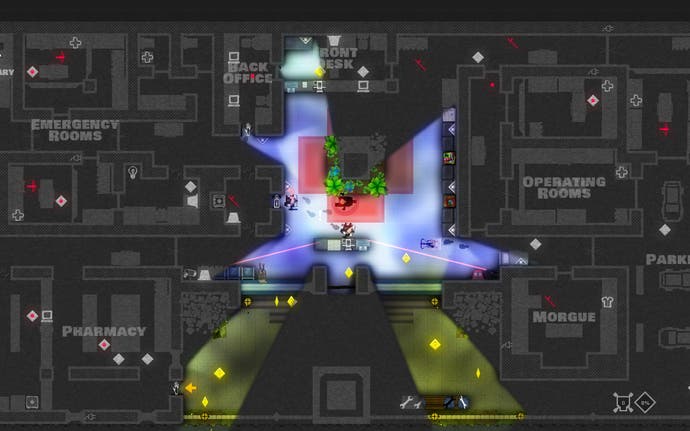
The icing, though, is that like a Keystone Kops movie things are so much fun when they go wrong. It's brilliantly exasperating to be quietly hiding in a pot plant waiting for an opening in a guard route, only to see your friend race past, kiting security behind him and triggering one alarm after the other. Some levels allow you to don temporary disguises which can be blown, disastrously, when you try and rob someone you're standing standing right in front of, and in stages which allow you to take weapons along, the mechanics behind ammo gathering openly encourage lunatic behaviour amongst the greedy or the lazy. New bullets or additional smoke bombs are earned by collecting more of the gold trinkets that litter the environments; that means that the more chaos you want to cause with weaponry - aiming is handled either with the mouse or the second stick - the more chaos you're going to have to risk causing by exploring every last nook and cranny.
Throw in lovely, pared back, bloomy visuals, an unlock structure that rewards replaying levels until you've nabbed all the loot, and a time-tracker that suggests the game might be an admirably sharp speed-runner, and this one's looking brilliant. There's an astonishing immediacy and energy to the fun that's down, I suspect, to a delicate development. Monaco is essentially a hyper-evolved Pac-Man, but by carefully expanding the complexity of the right systems, and exposing only a handful of mechanics to the player so as not to overwhelm them, Pocketwatch is creating a game in which anything can happen - and in which, when anything does happen, you find that you can always think of a few additional things to do about it. Is this what being a master thief feels like? If so, I want in.


